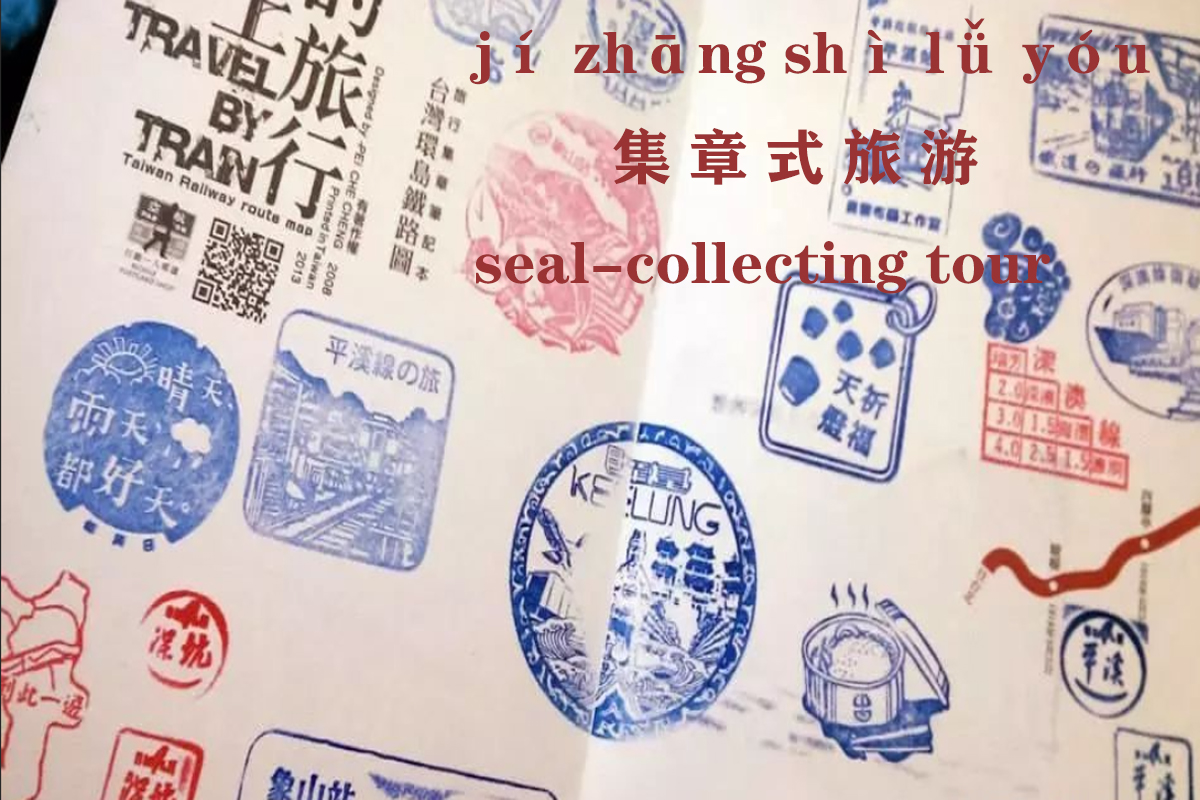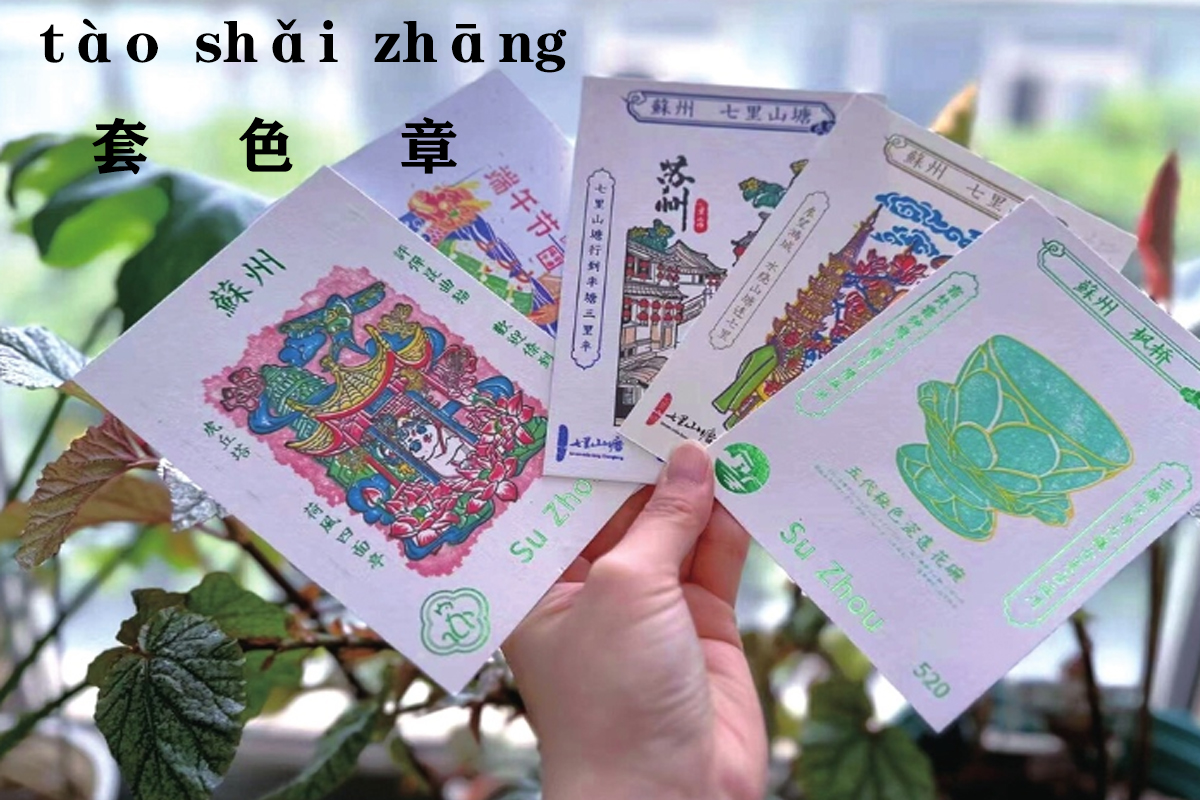Enjoying the Allure of Seal-Collecting Tour
Recently, a new type of tourism trend called “集章式旅游(jí zhāng shì lǚ yóu)”, seal-collecting tour, has gained popularity, with seal-collecting guides appearing widely on social media platforms. Enthusiasts find joy in collecting seals from scenic spots, local shops, and other places during their travels, as a way to create unique travel memories. They believe that souvenirs can be bought online and photos can be seen online, the act of stamping and collecting provides the most authentic way to be immersed in their journeys. Each stamp serves as a tangible record of the places they have visited, and evokes memories of the experiences they had, creating a more delicate feeling compared to simply looking at photos or videos.

As long as those enthusiasts approach ticket booths, shops, and rest stops in scenic areas, they scan every corner for one purpose: to collect seals. Someone will make their schedule based on the availability of stamping locations, disregarding where seals are not accessed. As some internet users have put it, “Visiting a location without stamping is like eating a cold egg tart: it's possible, but it lacks flavor.” Meanwhile, seals collectors place great importance on the experiences, believing that the commemorative value of seals lies not only in the design of them but also in the act of stamping. They appreciate the texture of the paper, the humidity of the air, the depth of the ink, the angle of the stamp, etc., all in that fleeting moment of stamping. Thus, buying seals directly from others is considered uninteresting and dull.
Scenic spots are well aware of the preferences of tourists and have introduced a variety of seals to cater to their interests. For instance, the Anshan Museum offers “滚轮印章”(gǔn lún yìn zhāng), cylinders seal, which differs from the traditional method of pressing the seal onto paper, that is, visitors can roll the seal across the paper. In Suzhou, the Qili Post Office has introduced “套色章”(tào shǎi zhāng), chronotype seal. These seals feature a design that is “deconstructed” into different seals of various colors and shapes. Users need to stamp these individual pieces in a specific order several times to create the complete pattern. Each seal is themed around typical plants, architecture, and objects found in the Suzhou Gardens, showcasing a simple yet elegant style. In Luoyang (a city located in Henan Province), seals are made of jades, called “玉玺” (yù xǐ) in Chinese, resembling the seals used by ancient Chinese emperors that symbolize imperial authority. Each seal, when pressed, imparts a sense of making a significant decision like an emperor.

Although seal-collecting tour has recently gained popularity, the act of stamping has a long-standing history. Chinese seals appeared as early as the the Spring and Autumn period, with the size and material reflecting the social status of its owner. In terms of material, jade is considered the most noble, followed by gold, silver, bronze, and iron. Besides, the shape of the seal's knob (the decorative top part of the seal) is also of great importance. Common shapes include dragons, tigers, camels, turtles, and snakes. Today, seals have gradually evolved into the art of seal carving, and collecting seals has become a new way for young people to observe the world and document their lives. Spanning the river of time, the ancient seals has undergone a fresh expression, breathing new life into this treasured tradition.
Key Notes:
- 集章式旅游(jí zhāng shì lǚ yóu):seal-collecting tour, a journey featuring collect seals from scenic spots and local shops.
- 盖章(gài zhāng): the act of stamping
- 玉玺(yù xǐ):imperial jade seal, in order to signify the authority of the emperor, only the emperor's seal is called “玺” (xǐ), and is made of jade. Seals used by officials and subjects are called "印" (yìn) and are made of gold, silver, and bronze.
Do you want to take seal-collecting tour in China? If so, which cities would you most like to visit?